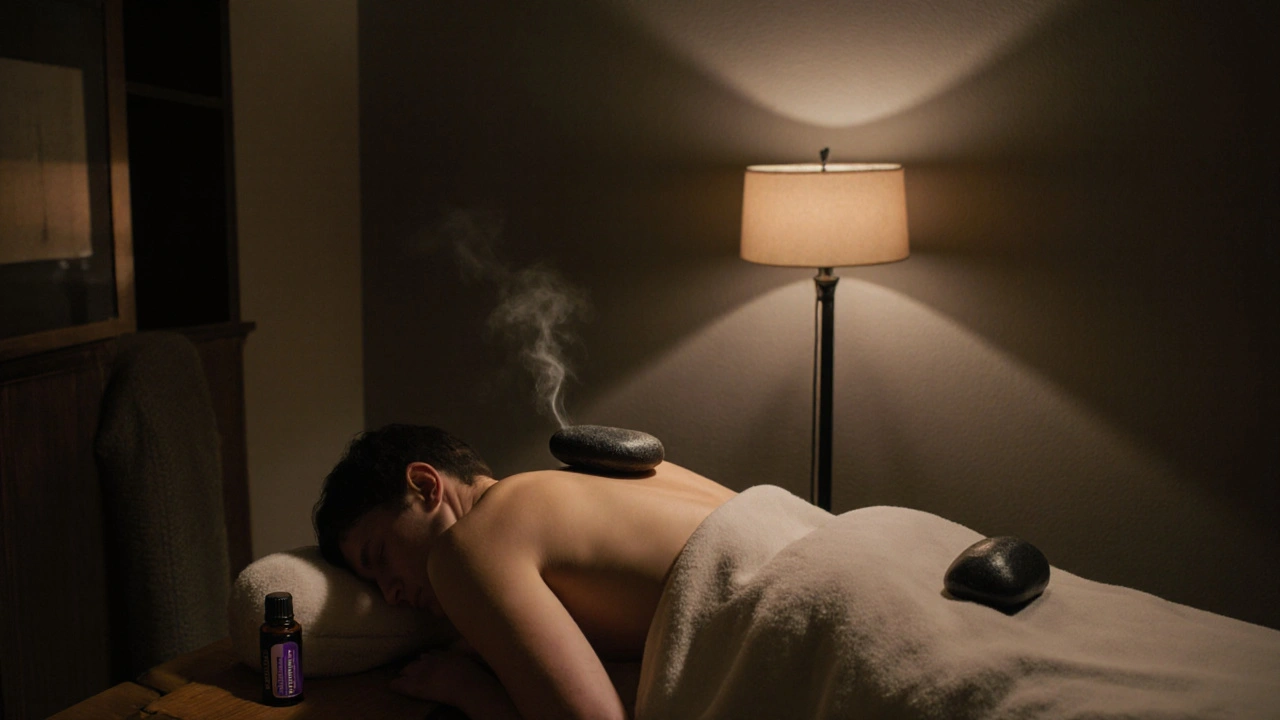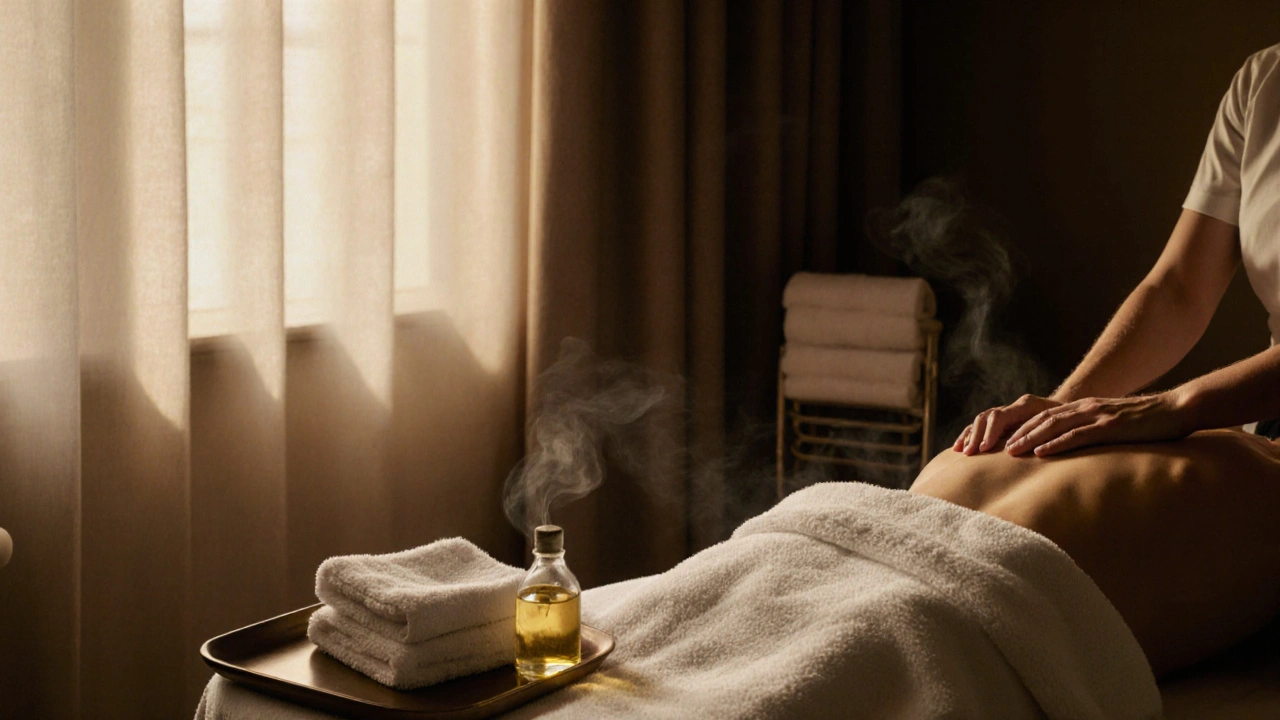London Massage Therapy: Techniques to Transform Your Health

If you’ve ever felt like your shoulders were stuck to your ears or your back had its own soundtrack of snaps and crackles, you’re not alone. London life is fast, loud, and just… a lot. That’s why more and more people are turning to massage therapy—not just for a bit of pampering, but to actually feel better in their bodies and minds.
Massage therapy in London isn’t some fancy extra anymore. It’s one of the simplest ways to deal with stress, sore muscles, and even that pounding head you get from too many Teams calls. And honestly, with choices from classic Swedish to sports, Thai, and even reflexology right here in the city, it’s super accessible—you’ll find a skilled therapist in every corner, whether you’re near busy Oxford Circus or tucked away in leafy Clapham.
Maybe you’re wondering if it’s really worth it, or how to even pick the right treatment. You might be surprised how much the right technique can do, not just for tight muscles, but for your sleep, mood, and energy. Let’s break down what you actually get from a session, how much you’ll pay, and how you can find great therapists (even last-minute!).
- Key Takeaways
- What Is London Massage Therapy?
- Top Benefits of Massage in London
- Popular Massage Techniques Offered
- How to Book and What to Expect
- Safety, Pricing, and FAQs
Key Takeaways
Before you scroll further, here’s what you need to know about massage therapy London options and why people from all walks of life swear by them:
- Massage therapy in London helps relieve muscle tension, boost mood, and can even improve sleep—no exaggeration. If you’re battling work stress or sore from the gym, you’ll notice the difference fast.
- There’s variety. From Swedish and deep tissue to sports and Thai massages, London therapists cover the classics and more. Some spots even offer pregnancy and reflexology treatments if you’re looking for something specific.
- Sessions typically last between 30 to 90 minutes. Most folks go for 60 minutes if they want full-body relaxation, or 30 minutes for targeted relief. London’s clinics and spas make it easy to fit a session into a busy day.
- Pricing ranges from £40 to over £120 depending on style, location, and therapist experience. Many places post their rates online so you know what to expect—no nasty surprises.
- Booking is simple. You can book online, by phone, or even walk in at most city spas and clinics. Last-minute appointments are pretty common, but for weekends it’s smart to plan ahead.
- Finding a legit, well-trained therapist is crucial. Stick with places that display qualifications clearly and have plenty of recent reviews.
| Massage Type | Average Price (London) | Best For |
|---|---|---|
| Swedish | £50-£90 | First-timers, relaxation |
| Deep Tissue | £60-£100 | Chronic aches, muscle tension |
| Sports | £60-£110 | Active people, injury recovery |
| Thai | £60-£120 | Stretching, energising |
Quick tip: Always mention allergies or medical issues before your first session. Got specific pain, like a sore neck from too much computer time? Say so—they’ll tailor the treatment for you.
What Is London Massage Therapy?
Massage therapy London simply means getting professional, hands-on bodywork right here in the city—done by licensed therapists who know what they’re doing. You’ll find a huge range of styles, from the classic relaxing types to therapies that target deep muscle pain or boost recovery post-workout. Unlike a quick massage chair at an airport, London’s massage therapists are usually fully certified and often hold qualifications like NVQ Level 3 or higher.
So, what happens during a typical session? First, your therapist will usually ask about problem areas, your health history, and what you’re hoping to get out of it. From there, you’ll lie down (often on a heated table, because yes, that’s a thing here), and then the therapist uses a mix of techniques—like kneading, stroking, or pressure work—to treat your muscles, joints, and soft tissue. The main idea is to relieve stress, pain, or stiffness and boost your overall well-being.
Don’t expect every massage to just be about relaxing music and aromatherapy (though many spots in London really go the extra mile with those perks). Some focus more on deep tissue work, others on specific issues like sports injuries or chronic tension. Because London is such a big, diverse city, you’ve got therapists from all over the world—so you can easily find someone who specialises in Swedish, Thai, Shiatsu, or even hot stone massages.
It’s estimated that more than 3 million people in the UK book some kind of professional massage therapy each year, and London makes up a big part of that demand. Many people use massages as a regular part of their health routine—not just when things hurt. It can be as much about prevention and mental health as it is about fixing sore spots.
| Type | Main Focus | Typical Duration |
|---|---|---|
| Swedish Massage | Relaxation, general wellbeing | 60-90 mins |
| Deep Tissue | Muscle pain, tension | 45-90 mins |
| Sports Massage | Injury prevention/recovery | 30-60 mins |
| Thai Massage | Flexibility, energy | 60-120 mins |
The best part? There’s no need to be super fit or in pain to book a massage therapy London session. Anyone can benefit—office workers with desk shoulders, gym lovers, new parents, or anyone feeling the heavy London pace. It’s about feeling better in your own skin, wherever you start.
Top Benefits of Massage in London
Everyone’s juggling something in this city—work, travel, or just keeping up with London’s hustle. So it’s no surprise that massage therapy London is way more than a treat. It’s a real health tool loaded with perks anyone can use.
For starters, regular massage lowers stress. That’s not hype—there are studies showing that even a single session can reduce cortisol, the stress hormone, and put you in a calmer state of mind. Got sore muscles from sitting at a desk all day or a weekend football match? Deep tissue and sports massages go straight after that stiffness, boosting flexibility and easing pain.
A lot of Londoners use massage therapy to help them sleep better. Therapists in the city say their clients often report falling asleep faster and staying asleep longer after a session. Not to mention, it can help with headaches, anxiety, and even circulation. Better blood flow means more oxygen to your muscles and brain—no wonder you walk out feeling lighter.
- Reduces stress and anxiety (great if the tube is your daily commute!)
- Relieves muscle pain and stiffness—especially common with office workers and city joggers
- Boosts energy and mood—perfect pick-me-up for busy days
- Improves sleep quality—many people notice this the same night
- Supports injury recovery for runners, cyclists, and gym lovers
- Enhances circulation, helping everything in your body work better
If you like numbers, check out this:
| Benefit | % of Clients in London Who Noticed Improvement (2024 survey*) |
|---|---|
| Reduced Stress | 87% |
| Less Muscle Tension | 82% |
| Better Sleep | 74% |
| Increased Energy | 61% |
| Helped Recovery | 58% |
*Data from a 2024 survey of London spa and clinic customers
Whether you’re looking to fix an ache, unwind after a crazy week, or just see what the fuss is about, massage therapy London can tick all those boxes. There’s a reason more locals are making it part of their regular routine rather than waiting for a holiday.

Popular Massage Techniques Offered
London is a real hotspot for different massage therapy London styles. Whether you’re out to fix nagging pain, recover from a workout, or just want to chill out, there’s a method that fits.
- Swedish Massage: This is usually what people picture when they hear “massage.” It uses long, flat strokes, gentle kneading, and some tapping. It’s great if you’re new to massage or want something relaxing. Most central London spas have Swedish on their menu. Pro tip: Ask for it if you want to just de-stress without any intense pressure.
- Deep Tissue Massage: Got stubborn knots? Deep tissue is all about slow, firm pressure right into those muscles. Therapists will focus on the layers beneath your skin, so it may “hurt so good,” but people swear by it for easing chronic tension in the back, shoulders, or legs. Just tell your therapist your pain points—customisation is normal here.
- Sports Massage: Popular with runners, cyclists, and gym-goers in London. Sports massage gets specific about recovery and injury prevention. It often includes stretching and strong movements to help get you back on your feet if you’re training hard or have an active job.
- Thai Massage: Not your average spa trip! Thai involves lots of gentle stretching and the therapist moves you into different positions—sort of like assisted yoga, but fully clothed. If you want to leave feeling loose and energized, this one’s fantastic.
- Reflexology: Focusing on your feet, therapists use pressure points that are said to link up with other body areas. Many swear it helps with headaches, sleep, and general wellness—plus, it feels surprisingly soothing after a day walking around the city.
- Hot Stone Massage: Heated stones are placed on your body and used with massage oils to ease tension. It’s warm, deeply relaxing, and perfect for chilly London days when your muscles feel stiff.
According to an NHS-backed survey of UK wellness services (2023), the most booked treatments in London were:
| Massage Type | % of Bookings |
|---|---|
| Swedish | 36% |
| Deep Tissue | 29% |
| Sports | 18% |
| Thai | 10% |
| Others | 7% |
You don’t have to pick one at random—most places will help you choose the right massage therapy London style for your needs. Just ask about the focus and pressure involved before you book, or chat to your therapist when you arrive. There are therapists all over the city and most have a mix of methods, so you can tweak your treatment to fit exactly what you want—whether that’s pure relaxation or sorting out a dodgy shoulder.
How to Book and What to Expect
Booking a massage therapy London session these days is honestly easier than ordering a pizza. Most reputable spas or clinics have instant online booking right on their site. There are also apps—think Treatwell or Urban—that let you scroll, see prices, and read reviews, all on your phone. Walk-in spots still exist, especially in central London, but for popular times like evenings and weekends, booking ahead is a smart move.
Here’s a quick breakdown of how you usually book:
- Pick your preferred type of massage therapy London—Swedish, deep tissue, sports, or something more targeted like Thai or reflexology.
- Decide on a time. Most places let you book anywhere from 30 to 90 minutes. If it’s your first session or you really want to unwind, go for at least 60 minutes.
- Choose your therapist. Some platforms show therapist profiles—handy if reviews matter to you.
- Fill in your details and payment info. Many sites take payment in advance, while some do it after your session.
- Check your email for a confirmation and any instructions. Some places ask you to arrive early or fill in a quick health questionnaire.
So, what actually happens in a session? Don’t worry—you don’t need to show up in fancy spa gear. Just arrive in comfy clothes. When you get there, you’ll probably fill out a form about your health and any problem areas. Your therapist will talk to you about what you want from the session—deep relaxation, relief from muscle tension, or recovery from sports.
During the massage, you'll undress to your comfort level (underwear stays on, robes and towels keep you covered). The room is usually warm, the lights dim, and music soft—nothing scary or awkward. Your therapist will use oils or lotions and keep checking that the pressure is good for you. If anything’s off (too firm, not firm enough, music too loud), just say! They want you to be comfortable.
Afterwards, it’s common to feel super relaxed—sometimes even a bit sleepy. Drink some water to flush out any released toxins and give your body time to settle. If you booked a deeper or sports massage therapy London, you might feel a little sore the next day, like after the gym, but it passes quickly. Most places give you aftercare tips, like stretches or advice for your next visit.
| Session Length | Most Common Purpose | Typical Cost (£) |
|---|---|---|
| 30 minutes | Targeted relief (shoulders, back) | 30-45 |
| 60 minutes | Full-body relaxation or specific issues | 55-90 |
| 90 minutes | Deep tension release | 90-120 |
Quick tip: Don’t rush off after your massage. Give yourself an extra 10-15 minutes to enjoy the relaxed feeling before jumping back on the Tube or into meetings.
Safety, Pricing, and FAQs
Lining up a massage therapy London session should feel like a treat, not a risk. Reputable therapists in London follow strict guidelines. They’re trained, insured, and often hold certifications like ITEC or VTCT. Always go with a legit business—they’ll ask about your health history first, keep things private, and use clean linens for every client. Got allergies or skin issues? Just mention it upfront. No good therapist will mind, and they’ll tweak their oils or techniques for you.
Pricing in London covers every budget. A 60-minute session usually runs between £50 and £90 in most high street clinics. Fancy hotels or luxury spas can push that to £120 or more, while home visits (yep, they’ll come to you) could be £70 to £110. Quick ‘express’ massages or local deals sometimes start from £30 for 30 minutes. Watch for first-timer discounts—some clinics chop 10%–20% off for newbies. Weekday mornings cost less at certain places, too.
| Massage Type | Typical Price (60 min) | Location |
|---|---|---|
| Swedish/Relaxation | £50 – £80 | High street/spa |
| Deep Tissue/Sports | £60 – £90 | Therapist studio |
| Thai/Reflexology | £55 – £85 | Specialist clinics |
| Hotel Spa Massage | £100 – £150 | Luxury hotels |
| Mobile/Home Visit | £70 – £110 | Your location |
You've got questions—let’s clear up the main ones right here:
- Is it safe to get a massage in London? Absolutely, as long as you choose a qualified, registered therapist. They stick to hygiene rules and check for medical issues before starting.
- Do I need to undress fully? Only to your comfort level. You’ll always be covered except for the area being worked on.
- Should I tip? Tipping isn’t expected in most clinics but is appreciated (about 10%), especially for mobile or salon therapists.
- How do I book last-minute—or after work hours? Loads of massage therapy London pros use booking apps like Treatwell or Fresha. Some are open as late as 10pm.
- What about cancellations? Check their policy before booking. Most places need at least 24 hours’ notice, or you’ll pay a fee.
So whether you’re booking for pain, stress, or just because you need a break, make sure you put your safety first, know what you’re paying, and ask every question you need. That way, your next session really will help you feel your best.


